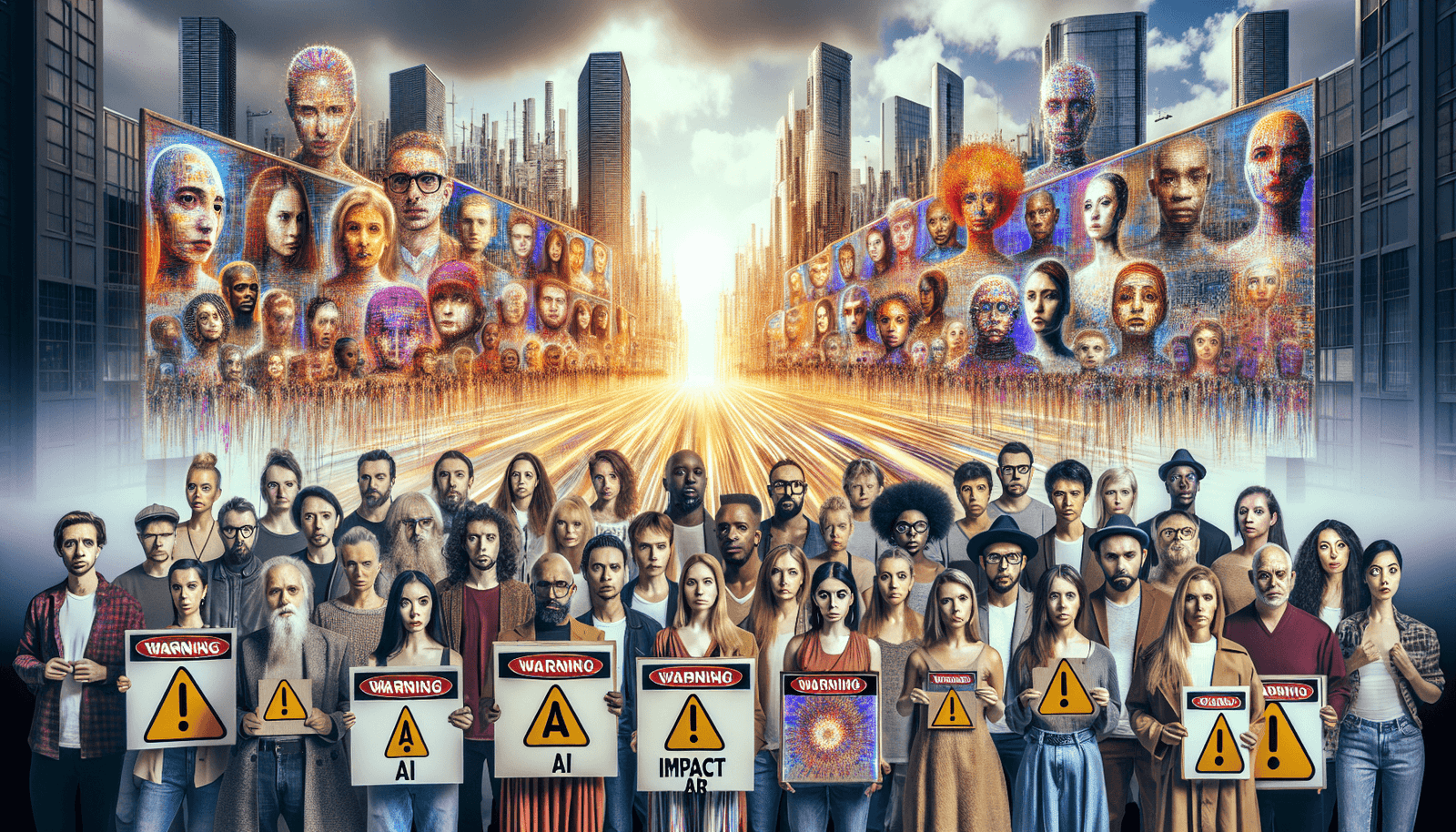ABBA’s Bjorn Joins 11,000 Artists to Warn About AI
Artificial Intelligence, or AI, has been making waves in various industries lately, including music, art, and entertainment. Recently, a powerful movement took shape when Bjorn Ulvaeus, a member of the iconic band ABBA, joined forces with over 11,000 artists to raise concerns about the growing influence of AI in creative fields. This development not only underscores the apprehensions of famous musicians but also highlights an evolving dialogue about the role of technology in creativity. You can explore related insights at Neyrotex.com.
The Concerns About AI in the Arts
The array of voices in this movement speaks volumes. Artists are voicing their fears that AI could replace human creativity by producing music, generating artwork, and even writing scripts that might lack the soul and essence crafted by a human artist. Bjorn Ulvaeus articulated the sentiment succinctly, stating that the essence of artistry resides in the emotional experiences that only humans can convey. This thoughtful perspective resonates strongly with fans, reinforcing the idea that art is not merely about generating output, but about expressing the nuanced human experience.
The Collective Statement
In a bold move, these artists drafted a collective statement that boldly challenged the growing trend of tokenizing creativity through mechanization. They urged for regulations and more significant conversations surrounding the use of AI in artistic endeavors. Among their demands were crucial points such as:
- Establishing clear copyright protections for human artists.
- Creating necessary regulations to prevent potential exploitation by large tech companies.
- Encouraging dialogues to integrate AI as a tool rather than a replacement.
These points encapsulate their fear that instead of enhancing creativity, AI may directly threaten artistic livelihoods. Such alarming prospects call for greater awareness as we navigate the uncharted waters of technological advancement and creativity.
The Evolution of AI in Music and Arts
To fully grasp this situation, it’s vital to explore how AI has grown within the arts and its implications. In recent years, AI has proven its capability to compose music and generate artwork, challenging traditional concepts of creativity. While these advancements may seem impressive, they also raise profound questions about originality and ownership.
For instance, AI can analyze vast datasets to create compositions that mimic famous artists or styles. This has been met with both enthusiasm and skepticism in the music industry. Many musicians are curious but concerned; they don’t want to see their hard work overshadowed by algorithms that can churn out similar sounds without emotional backing. This environment poses a significant dilemma for artists who fear that their unique expression might be lost in the digital shuffle.
Voices from the Industry
In addition to Bjorn Ulvaeus, several prominent artists and industry leaders have echoed these thoughts. They’ve pointed out that while innovation is essential, it should not come at the cost of erasing human elements from the creative process. Some examples include:
- David Bowie had previously expressed skepticism about the future of music in the face of emerging technologies, emphasizing the importance of safeguarding individual creativity.
- Taylor Swift has spoken about how personal storytelling is at the heart of her music, underscoring the irreplaceable value of human experiences.
- Elton John shared concerns over AI-generated music lacking the emotional depth that resonates with listeners and creates a genuine connection.
This wide array of voices contributes to a growing consensus in the industry: that we must tread carefully when integrating AI into artistic practices. The musical landscape is continually evolving, but it’s crucial that human narratives and emotional depths remain at the forefront.
The Artistic Community’s Response
Artists from various backgrounds have rallied together to foster discussions around these themes. Collaborations and forums are popping up worldwide, where musicians, visual artists, and creators come together to share their thoughts on the implications of AI. For instance, events hosted by organizations such as Music for Democracy emphasize how technology should be used responsibly to promote human creativity rather than usurp it.
Moreover, several nonprofits are taking a stand, advocating for regulations that protect artists against the misuse of AI tools by major corporations. The aim is to preserve the artistic value that comes from human experiences and stories. This proactive approach demonstrates how the art community is willing to fight for their creative liberties and the integrity of their work.
What Lies Ahead
The path forward remains uncertain, but what is evident is that discussions surrounding AI’s role in creativity will intensify. With Bjorn Ulvaeus and 11,000 other artists taking a stand, the question becomes: how can the music and entertainment industries adapt without losing their essence?
- Regulations need to be established that define the role of AI in creative processes.
- There should be initiatives that promote human artists and their work over mechanized productions.
- We must encourage creative collaborations between AI tools and human artists, allowing technology to be an ally rather than a replacement.
As we approach an increasingly digital future, the importance of maintaining human narratives in arts and creativity cannot be overstated. The message from Bjorn and his fellow artists serves as a reminder of the collective responsibility to ensure that artistic expression retains its soul in the face of inevitable change.
Conclusion
The efforts of Bjorn Ulvaeus and the 11,000 artists highlight a critical juncture in the evolution of creativity amid technological advancement. While AI can enhance aspects of the arts, it must not overshadow the human touch that defines genuine artistry. It’s essential for artists and fans alike to remain vigilant and proactive in safeguarding the emotional richness and originality that characterize all forms of art. The movement is an invitation for everyone to engage in meaningful discussions about the future of creativity. For further exploration into the intersection of creativity and technology, check out Neyrotex.com.
As the dialogue continues, we can only hope that technology and artistry will find a harmonious balance, promoting creativity while honoring the unique human experiences that inspire it. In this brave new world of AI, may we always celebrate the irreplaceable voices of artists and their deep connection to the art they create.







